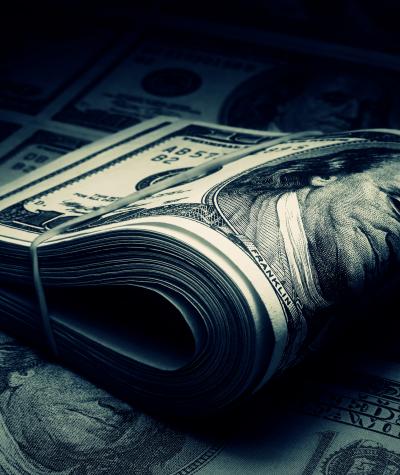“Dark money" groups are political organizations that masquerade as "social welfare nonprofits" under section 501(c)(4) of federal tax law, allowing them to avoid having to disclose where any of their money came from. Wealthy special interests use these groups to pour cash into elections and influence legislation in their favor, while keeping their involvement totally secret.
Many of these groups are, in fact, operating illegally. Federal campaign finance laws provide that any group with a “major purpose” of engaging in federal campaign activity must disclose its contributors, and federal tax laws provide that political activity cannot be a 501(c)(4) nonprofit group’s “primary activity.”
If a group wants to work primarily on politics, it must register as a political committee and disclose its donors.
Dark money groups get away with breaking the law because the two federal agencies charged with overseeing political activity and nonprofits, the Federal Election Commission (FEC) and the Internal Revenue Service (IRS), are doing practically nothing to stop them.
In every recent election year, dark money groups have spent millions of dollars on politics without facing any accountability before the federal government.
Even when dark money groups blatantly spend millions of dollars in secret money to influence elections, these agencies look the other way.
The Senate Finance Subcommittee on Taxation and IRS Oversight recently held a hearing in which multiple Democratic senators raised concerns over the lack of accountability for dark money groups that break the law.
Former FEC Commissioner Ann Ravel warned that the IRS “has shirked [its] duty”, and that an “unwillingness to work together to enforce the law” among federal agencies is “negligence...detrimental to the American people.”
The IRS can revoke a nonprofit group’s tax-exempt status if it violates the rules regarding political activity. But after careful review, CLC could not find any example in recent memory of a 501(c)(4) organization losing its tax-exempt status because of its political activity.
So why aren't the cops on the beat? Dysfunction at both the FEC and the IRS, and the actions of Congress, have allowed dark money groups to operate with total impunity — even when they're plainly breaking the law.
At the IRS, staff attrition, budget cuts and a "comically cumbersome" process for reviewing 501(c)(4) groups have all hobbled the agency's ability to enforce the law. But the larger issue is a 2013 scandal in which the IRS was accused of targeting conservative groups.
Years later, it emerged that the agency had also pursued progressive groups for similar violations, at which point the agency’s enforcement abilities had been severely restricted.
Congress began including a rider in yearly appropriations bills that prevented the agency from spending any funds to "issue, revise, or finalize any regulation, revenue ruling, or other guidance…relating to the standard" used to determine whether a 501(c)(4) group was really operating for "social welfare." As of 2022, Congress is still passing this restrictive provision into law every year.
The reaction from Congress created a culture of fear at the IRS that "paralyzed" the division responsible for reviewing tax-exempt groups.
Meanwhile, enforcement by the FEC – which is responsible for enforcing federal campaign finance laws – has all but collapsed. Federal law requires that groups whose major purpose is federal election activity register as a political committee and report their contributors publicly. If a group fails to do so, the FEC has to hold them accountable.
But the FEC requires a majority vote to act, and when it reviews complaints alleging that a dark money group is operating as an unregistered committee, it routinely deadlocks on whether to enforce the law, or even whether to investigate.
These FEC deadlocks have become the rule rather than the exception, and as a result, wealthy special interests operate through dark money groups with total impunity, freely spending secret money on politics while federal regulators do nothing.
But a recent hearing raises the possibility that Congress will finally step up to the plate and improve the situation. It could start by getting rid of the “dark money rider” that, year after year, is preventing the IRS from enforcing existing laws against 501(c)(4) groups that funnel secret money, otherwise known as dark money, into politics.
CLC also supports passage of the Democracy Is Strengthened by Casting a Light on Spending in Elections (DISCLOSE) Act, a bill that would require any group spending money on politics to disclose the source of donations aggregating over $10,000 in a two-year election cycle.
Sen. Sheldon Whitehouse of Rhode Island, who chaired the hearing, has introduced the DISCLOSE Act in every Congress since 2012. It’s long past time for it to be enacted into law.
For our part, CLC is not standing idly by while this lawbreaking continues. CLC has filed numerous administrative complaints alleging that dark money groups are operating in violation of federal law. When the government fails to act, CLC goes to court, seeking an order that compels the FEC to act, or authorizing CLC to file our own suit to enforce the law.
CLC will continue to bring complaints and legal action against groups that break campaign finance laws, while urging Congress to uphold and strengthen statutes that ensure political spending is transparent.

